|
Until recently, almost no one knew that there had been a Women's Land Army in British Columbia, operational between 1943-1948. In fact, it is only mentioned in passing in any book on agriculture during the Second World War. This all changed when I heard about the Ontario Women's Land Army and read Bonnie Sitter and Shirleyan English's book "Onion Skins and Peach Fuzz" and realized that my grandmother had done an incredibly similar thing during the Second World War, only in B.C., not Ontario. However, when I looked for such a program, I couldn't find any proof of its existence! Armed with the stories of my grandmother and high speed internet, I searched large online Newspaper archives, hoping to find something of substance. Finally, I hit the jackpot! An article in the Vancouver Sun about a Women's Land Army being proposed in B.C. Using that as my reference point, I dug deeper and found a wealth of articles spanning from 1942-1946 and knew that there was a story to be told. I approached the University of Regina with my idea, and a Masters thesis was born. Since beginning this journey, I have come across the stories of many brave, hard working young women who travelled to remote, interior regions of British Columbia to fill farm labour shortages caused by a boom in wartime industry employment and a high enlistment rate in BC. Using oral history, archival material (digitized and in person at the BC and Saskatchewan provincial archives), advertisements, and secondary literature, I have started to unraveled the complex history of labour in BC, stigmas about gender, racist ideologies, wartime propaganda, and the way women responded to the war effort in different rural communities across Western Canada. When my masters degree is published, it will be the first academic work on the topic of B.C.'s Women's Land Army. However, this is just the beginning, and I look forward to preserving, documenting, and commemorating further stories of women agricultural labourers across Canada.
0 Comments
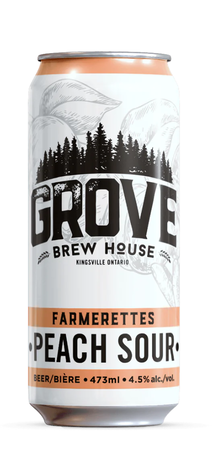 Grove Brewing Company has released a Peach Sour in the name of Farmerettes! Their website notes that: "During the labour shortage throughout WWII, young women across Ontario flocked to work on farms to help sustain the Canadian agriculture industry. Groups of “Farmerettes” maintained over 100 crop fields, including numerous peach orchards in Kingsville. Farmerettes spoke of basking in the Essex County sun together as new friendships unfolded, the same way you should enjoy this refreshing Kettle Sour. Here’s to the hardworking women who pushed social boundaries and fed our nation." It is available to purchase online at: shop.mygrovebrewhouse.com/products/farmerettes-peach-sour or on location at Grove Brewing Company, 86 Wigle Ave Unit 1, Kingsville ON. On April 15, 2023, a very special event took place at the Kitchener Public Library in Ontario: a reunion for all farmerettes who worked with the Ontario Women's Land Army between 1941-1952! For some, this was more than 80 years ago, but they showed up and shared their stories with pride and clarity. Almost all of them were now in their 90s, but it almost seemed as if no time had passed at all. Their camaraderie, laughter, and memories tied them all together. The reminiscence event was hosted by Kim Blackwell, the Managing Artistic Director of 4th Line Theatre. She, and playwright, Alison Lawrence, soaked in their time with these ladies and cherished their stories, which will be used in a play that Lawrence is writing about the Farmerettes and will be put on by 4th Line Theatre. Farmerettes in attendance were so proud of their contribution to the war effort, and spoke fondly of their time. Even when asked what was hard or disliked about the program, they were hard-pressed to remember anything. Yes, the work was hard, but it was rewarding, and the company of other girls made it fun! Yes, they were homesick, but they were also on an adventure! Yes, the accommodations were not always 5 stars, but it was nothing in comparison to what the "boys overseas were experiencing." Overall, it was the friendships, rewarding work, and adventure that kept many of them coming back, year after year. The event was live-streamed, accessible by zoom, with news outlets there to cover the reunion. Oast House Brewers was there with a table set up, selling a sampling of their newly released beer, Farmerette Farmhouse Ale. Below, you can see the adorable label and Dawn McClintock, a member of the group, Farmerettes Forever, dressed fabulously. There was even a cake designed with the Ontario Farm Service Force Farmerette Badge in celebration. What a special day!
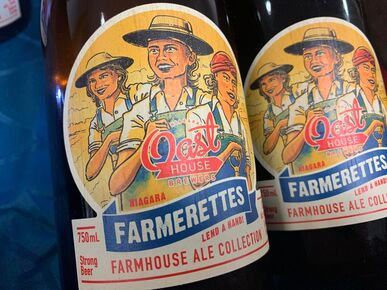 If you are ever in the Niagara region, make sure to visit Oast House Brewers! They have a limited edition, "Farmerettes Farmhouse Ale," inspired by the women who worked as Farmerettes in the area during the Second World War. The Niagara Oast House Brewery Instagram Page describes the ale as being "reminiscent of fruit jams and preserves, and after a long day of aging inside the bottle, clocks out at 6.0%. A strong beer, just like the people who made it." It can be purchased through their online shop, shop.oasthousebrewers.com/ or in person, at 2017 Niagara Stone Road, Niagara-on-the-Lake, Ontario, Canada. A few of the farmerettes had the privilege of drinking Farmerette Farmhouse Ale at a recent reunion! What a special moment that must have been for them! These photos were taken by Dawn McClintock. In 2021, a group of Farmerettes and supporters reached out to Canada Post about designing a postage stamp series in memory of the girls who participated in Canada's Women's Land Army during the Second World War. Letters were written to Members of Parliament, and even to the Prime Minister, asking for their support in this initiative. 97 year old, Denise Powel, who worked as a farmerette from 1941-1944 wrote to the Stamp Advisory Committee about what seeing a stamp in memory of the Women's Land Army would mean to her: So far, we have received a positive response, and are hopeful that Canada Post will design and issue a stamp to recognize the Farmerettes for their Service in Ontario and British Columbia from 1941-1952 in food production.
|

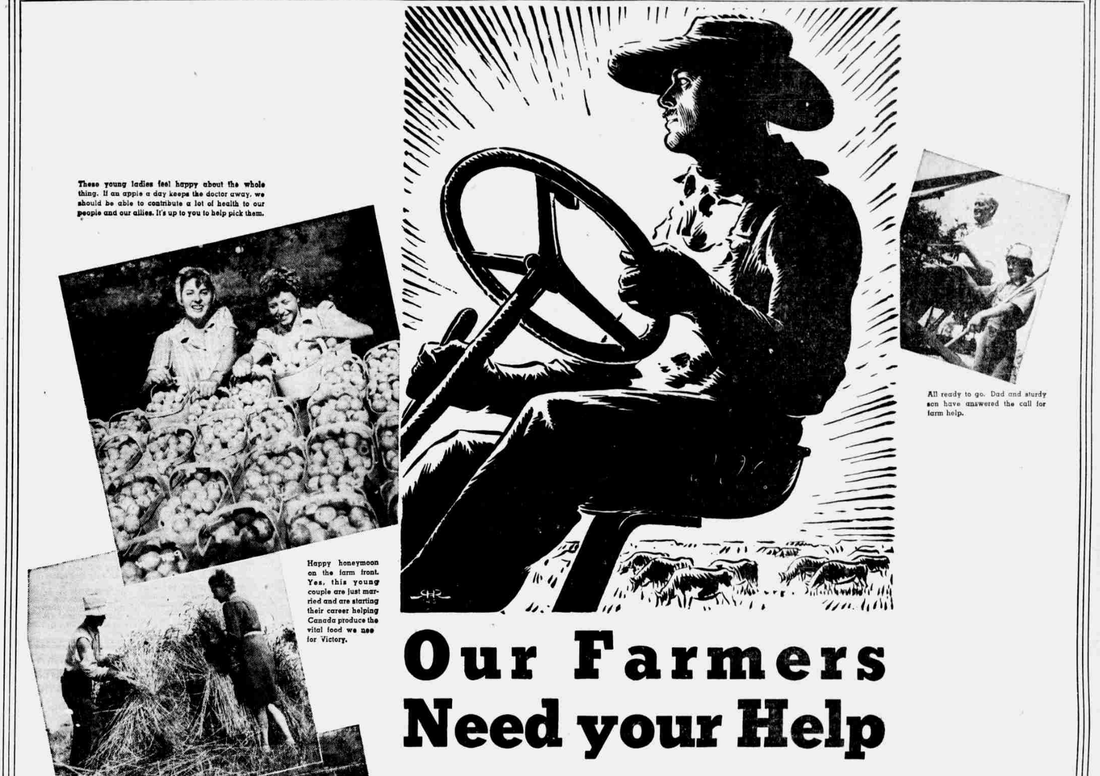
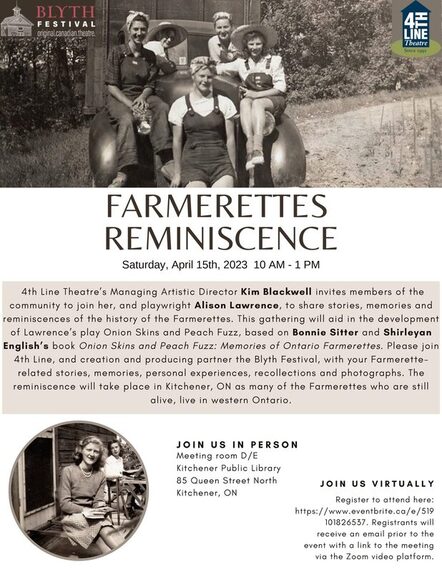


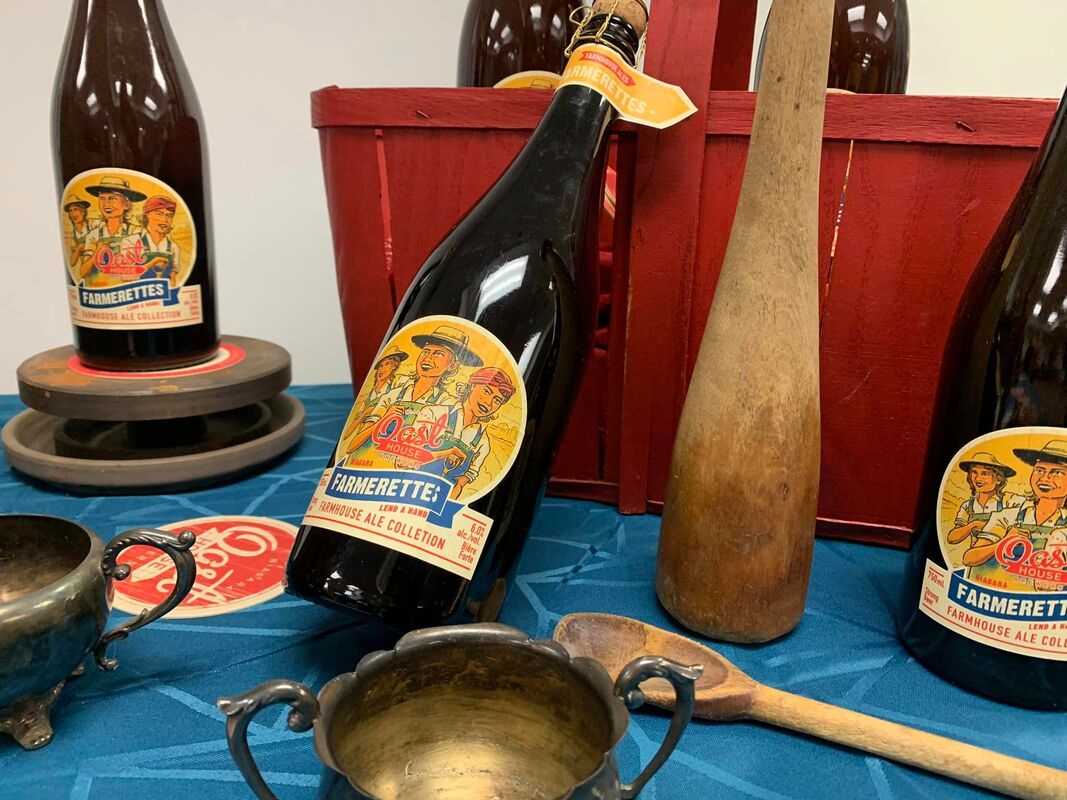
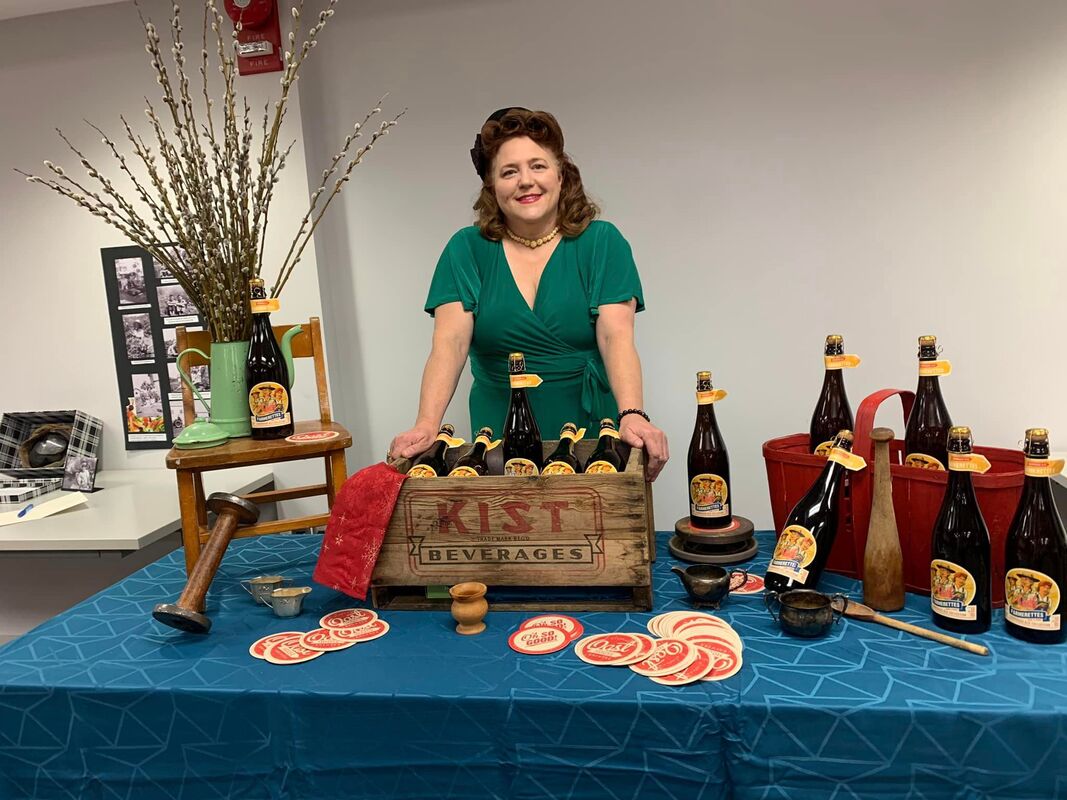
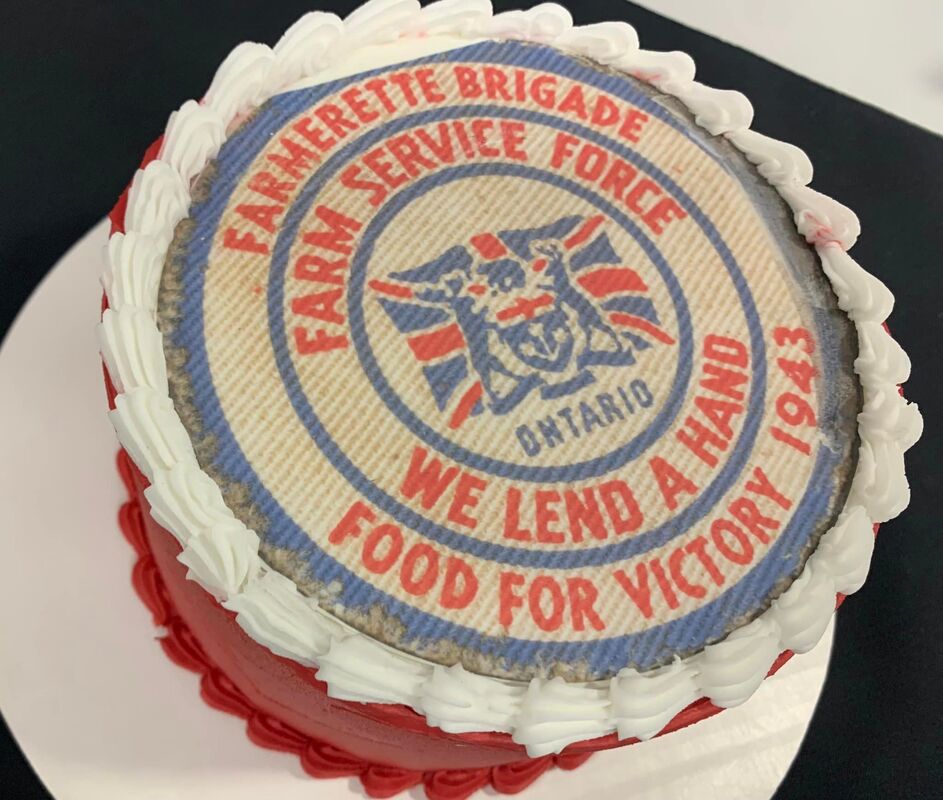
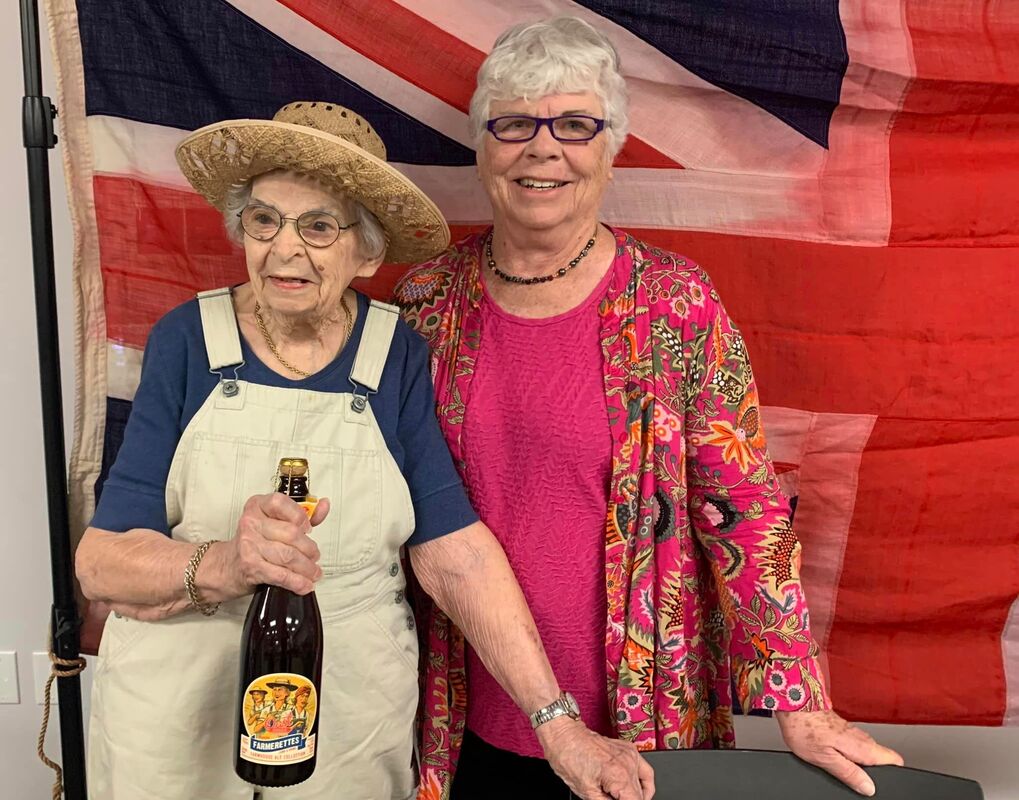
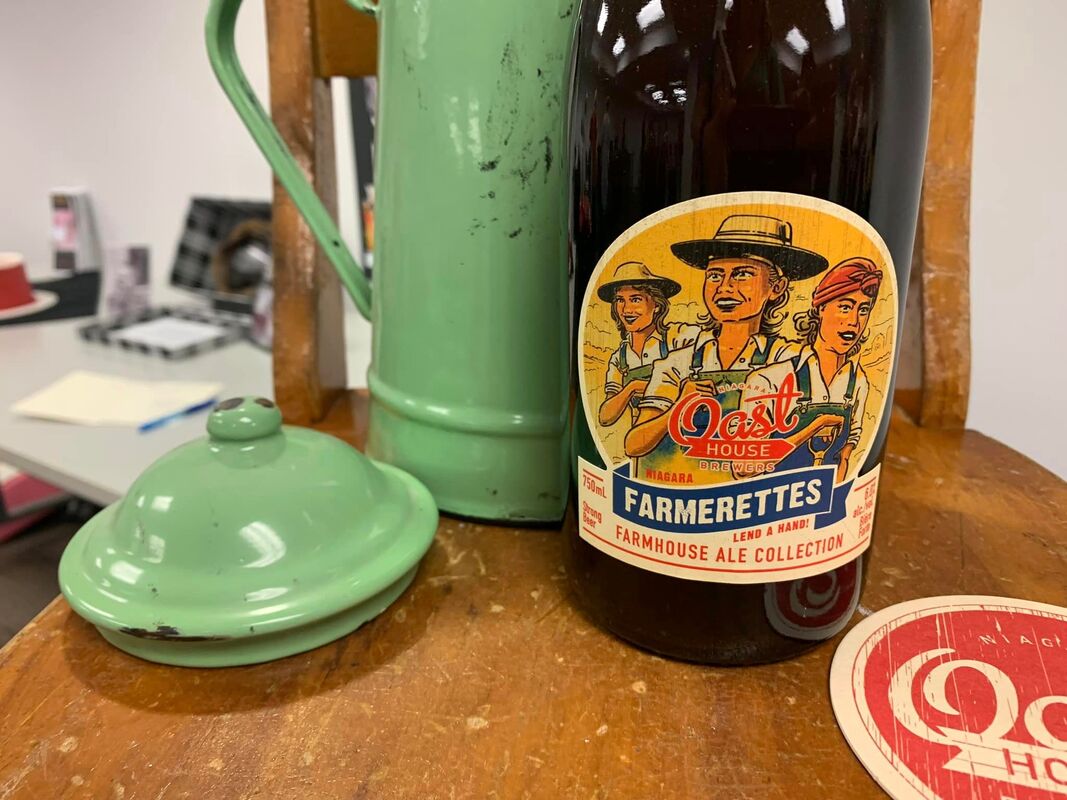
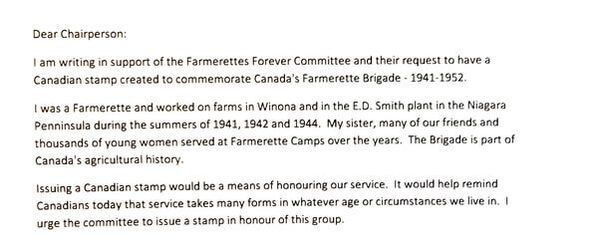
 RSS Feed
RSS Feed
